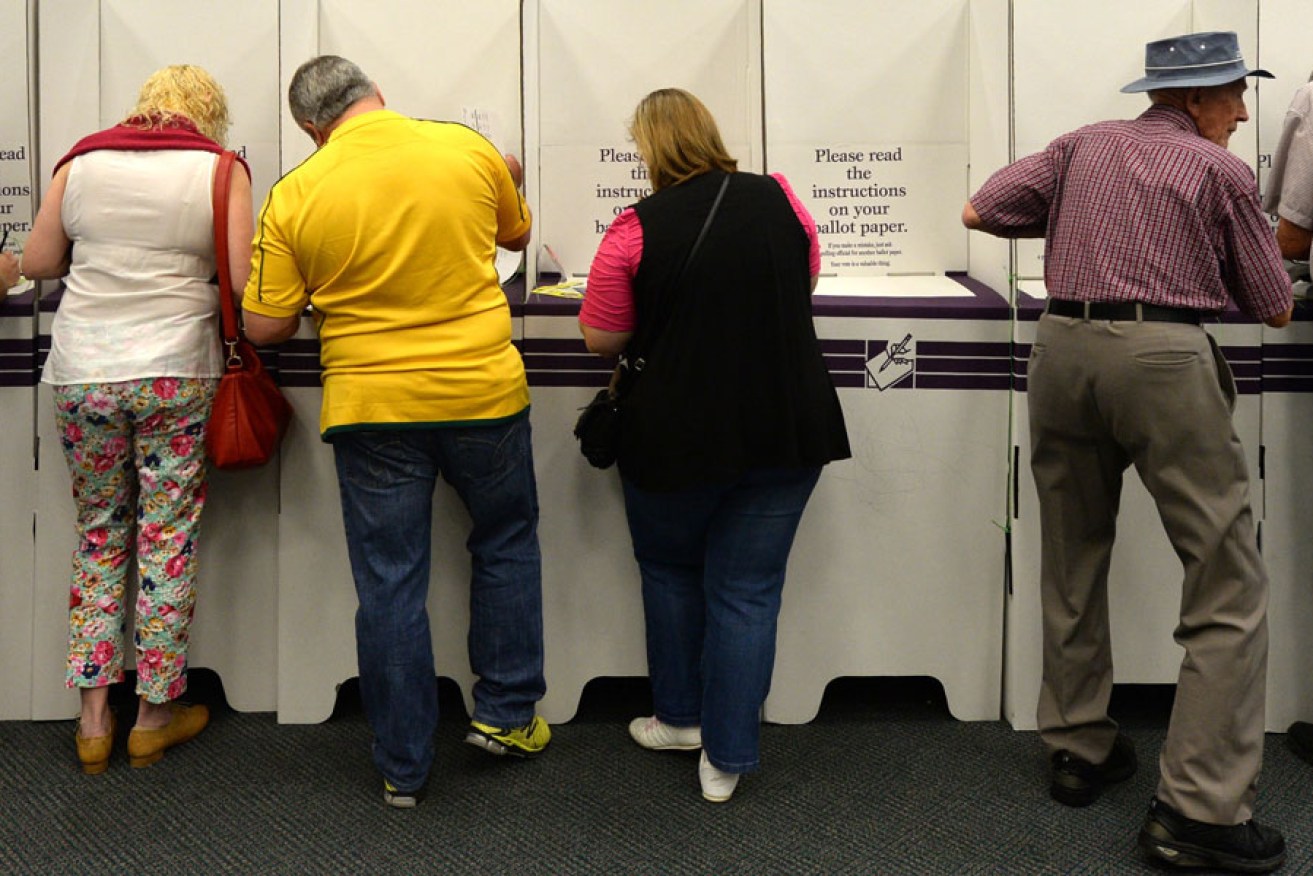Vision-impaired voters to have access to electronic voting at state election
For the first time, South Australians with a vision impairment will be able to cast a secret vote at the March state election.

Voters at polling booths. Photo: AAP.
The State Government has approved the use of VoteAssist, a computer-based application developed by the Western Australian Electoral Commission for its 2013 state election.
The software uses specially designed computer terminals, headphones and a numeric keypad to provide audio prompts to guide the elector through the voting process.
The Government passed legislation last year to introduce electronically assisted voting technology.
The legislation was prompted by recommendations made by the Electoral Commission following the 2010 and 2014 state elections, calling for a trial of alternative voting for some electors.
“VoteAssist was selected as it provides a secure, safe and independent method of voting that does not store votes electronically or remotely,” the Electoral Commissioner said.
Dignity Party representative Kelly Vincent unsuccessfully attempted to pass legislation to improve access to voting for people with disabilities through Parliament back in 2014.
She described the Government’s approval of the VoteAssist software as a “win for everybody.”
“People have been very satisfied that VoteAssist provides privacy and autonomy when voting and the guarantee that their vote is secure,” Vincent told InDaily.
“People should be aware it takes extra time to cast their vote – when I trialled it, it took 40 minutes to vote when I voted below the line.”
VoteAssist will be available in three pre-poll voting centres at the Royal Society for the Blind locations on Pirie Street in Adelaide, Anderson Walk in Smithfield and Dyson Road in Noarlunga Downs.
Vincent said it was likely the Government would review the system at the completion of the March election before considering an increase in the number of polling booths serviced by the system.
“We do need to give people time to adjust and we don’t want to rush through a system,” she said.
“There are other factors that our Government needs to work on, and they include making more polling booths wheelchair accessible, using larger fonts, making information more accessible and understandable to a wider audience and introducing Auslan.
“If re-elected [the Dignity Party] will move to expand electronic voting to people who struggle to fill out a ballot paper in writing because of physical disability.”
Attorney-General John Rau said the VoteAssist software would make it significantly easier for people who are blind or who have a vision impairment to lodge their vote.
“What the Parliament’s done is we’ve recommended a practice whereby people who previously couldn’t vote in secret now are able to do so privately without having someone assist them,” Rau told InDaily.
Rau said the government had no plans to introduce online voting, describing the 2016 Census as a “shemozzle” which proved current technology was not yet ready to handle large-scale sensitive data input.
“It’s as simple as this – if you have an issue, at least with traditional polling systems you have physical pieces of paper that can be recounted,” he said.
“If the whole voting process were to be digital there would be the question of hackers and serious security concerns.
“That’s not to say that in a decade or two it might occur.”
The ACT became the first state or territory to use electronic voting at a parliamentary election in 2001.
People with a vision impairment are not obliged to use VoteAssist, and the Electoral Commission is still encouraging postal voting as an alternative.
The commission is also encouraging voters with a vision impairment to book a session to cast their vote at a VoteAssist polling booth. Bookings will be available on the Royal Society of the Blind website from Monday.




